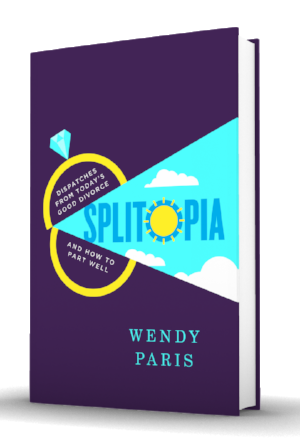Divorce
How Good Divorce Lawyers Have Improved Divorce
Are divorce lawyers at the root of bad divorces?
Posted December 14, 2016

Do divorce lawyers cause bad divorces? We’ve all heard of greedy-seeming divorce lawyers egging on couples to fight, or inept counselors who somehow passed the bar and then went on to inflict their incompetence on unsuspecting families. But as I began to talk to thoughtful, family-minded lawyers, mediators, legal scholars, and reformers, I discovered something important:
Some of the most helpful innovations in divorce have been created by lawyers and other legal professionals. These are people dedicated to helping you get through—and to using the legal process itself to create a blueprint for a solid, stable, happy life unwed.
I know this sounds like a radical notion, particularly when you talk to most people about divorce, including many divorce lawyers, or anyone embroiled in an ugly fight. I’d assumed that lawyers caused most of the awful divorces we see, circling flailing marriages like sharks, salivating, eager to snap up desperate partners’ lifelong earnings. But, in fact, we have divorce professionals to thank for helping make parting a more humane process.
What happened was this: as more states began to pass no-fault in the 1970s and 1980s, lawyers and legal scholars around the country realized that the adversarial approach was out of sync with the spirit of the new laws. They began forging more cooperative, more appropriate options—different forms of “alternative dispute resolution.”
Today, legal approaches such as mediation and collaborative divorce allow you to work past anger and fear, learn new communication skills, engage in financial planning—and sometimes even improve your relationship, post marriage.
“The more you can befriend this person, that’s your best safeguard against ever having to go back to court,” says Regina DeMeo, a family lawyer, commentator and Splitopia.com contributor based in the Washington, D.C., area.
Like many legal innovators and activists I spoke to, DeMeo once prided herself on being a “pit bull” lawyer. Then she faced her own divorce.
She realized that battling with her spouse—as she’d long advised others to—could seriously scar her son. She signed up for mediation and collaborative law training, and completely changed how she practiced family law. In her new practice, she said, her divorced clients shake hands at the end. They “own” the outcome. “The more I saw the fruits of my labors, the more I saw this as a much better way to divorce,” she said.
If we were going to spend the time and money to file for divorce, I decided, the experience should do more than merely render us unwed. The process should be ameliorative, protecting and even improving our future.
***

Read about Colorado Super Lawyer Beth Henson's approach to mediation.
Read this piece by attorney Regina DeMeo and psychologist Mary Atwater on the 3 key skills to make collaborative divorce succeed.
Learn more about how to choose and use a mediator or collaborative lawyer in "Splitopia: Dispatches from Today's Good Divorce and How to Part Well."


